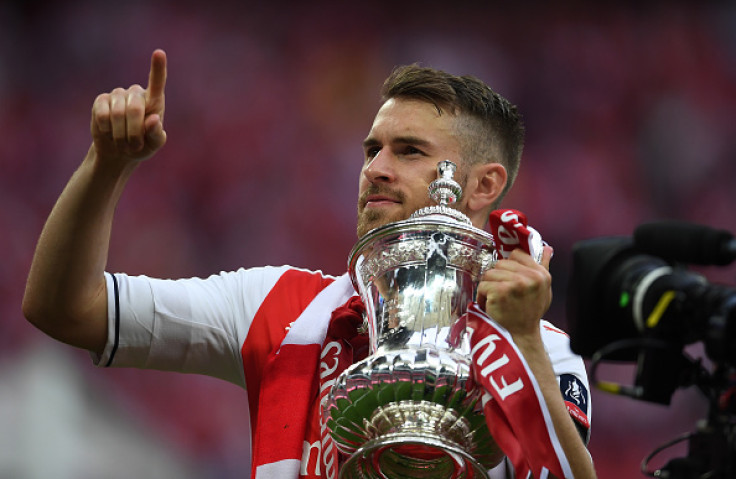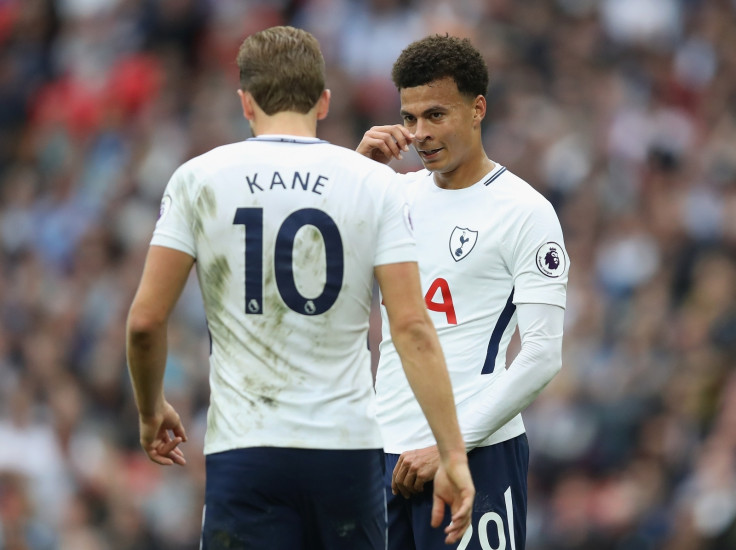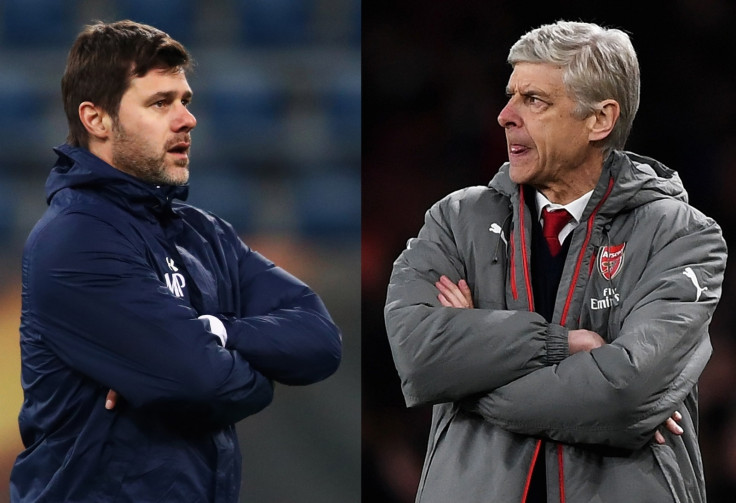Tottenham vs Arsenal: Why the north London derby is about more than just bragging rights
Wembley hosts two sides in the middle of a transition and in the need of a breakthrough moment.
A cursory glance at the Premier League table quickly reveals that the league's epicentre currently resides in the city of Manchester. While the top flight has a widely acknowledged 'big six', Chelsea are the only other member of that half-dozen-elite to have won the championship in the last 14 years (not to forget, of course, the heroics of the minnows from Leicester City).
Meanwhile, the supposedly big guns of Arsenal and Tottenham Hotspur have not won the league for 14 and 57 years respectively. The Gunners did win the FA Cup last year, and three of the last four finals, and Spurs the League Cup a decade ago. But these are measly hauls for supposed big clubs.
So on Saturday [10 February] Arsenal and Spurs will be playing for the right to be deemed the kings of north London – and for a Champions League-qualifying spot - but little more.
By the measures already suggested, there is actually little argument about who owns bragging rights in north London: Arsene Wenger's Arsenal have won the title three times plus seven FA Cups, while Mauricio Pochettino's Spurs have won precisely nothing.
Admittedly, Wenger has been in situ for 21 years while his Argentinian counterpart has been in north London for less than four years. Even so, it is a little strange that Pochettino and Spurs are largely feted, while Wenger and Arsenal are the subject of almost constant criticism.
So, who is actually the king of north London? And is their position the result of achievements or expectations?
Wenger is in the final 18 months of his Arsenal contract and almost certainly his reign, during which the club has won 10 major honours, moved home from the 38,000 capacity Highbury to the 60,000-seater Emirates, stayed financially secure throughout the process and generally played a form of football that is pleasing on the eye. Just 46-years-old when he took over at Highbury, Wenger started strongly, winning all three of his league titles within the first eight years. Indeed four of his FA Cups came within the first nine years.

If Le Professeur had quit after his first decade he may well be considered Arsenal's finest ever manager. Eleven years later he is the club's – and the Premier League's – longest-serving manager. But the relative poverty of the second half of his Arsenal career probably places him back below the great Herbert Chapman who claimed the club's first two league titles and was more than partially responsible for the next three which were won within four years of his untimely death.
Chapman's Arsenal were known as the Bank of England Club because of the riches accumulated via a new stadium (the recently discarded Highbury) and large fan base. The modern Arsenal also have a fancy new groud, big supporter base and financial security. But the modern-day Gunners find themselves facing teams bankrolled by unrelenting foreign sugar daddies.
During the impressive first half of Wenger's reign, he benefited from the legacy of George Graham's defensive genius, inheriting a strong, well-drilled unit. At the other end of the field though, Thierry Henry was perhaps the most inspired signing of the 90s. Wenger was also helped by a golden generation of French players who won the World Cup and European championships and liked playing in London.
For eight consecutive seasons this potpourri of talent finished in the Premier League's top two. But the first half of Wenger's reign built an expectation that the second half has failed to live up to. With the added weight of European hopes that so monotonously regularly fell apart.

Pochettino is currently managing Spurs through a similar transition and is being given leeway by fans and pundits as a result. Pochettino has built a thrilling and talented team, plucking possibly the best striker in the world over the last three years out of the Spurs youth system and supporting Harry Kane by signing Dele Alli, Heung Min-Son and Eric Dier.
Tottenham came close to claiming their first title since 1961 in Pochettino's second season before imploding on a dramatic night at Stamford Bridge. The following season Spurs were second behind Chelsea. But the next step has never looked likely this year given Manchester City's long unbeaten start to the season, and the top four scrap which has followed.
Pochettino's stock is rising while Wenger's is falling. Arsenal fans have become bored and complacent with the familiarity of their delightful passing teams who lack the necessary fortitude on difficult occasions. Spurs are new and exciting but their fans also, crucially, have low expectations. After all, the club has only won the title twice in its history.
Arsenal come laden with anticipation, which Wenger only raised even further with his early triumphs. Wenger's three titles over his long reign are no more than would be expected over such a period at a club that has 13 such trophies. Spurs may currently be the better of the two teams, but it is marginal and only based on recent results.
So heading into the summit meeting at Wembley, both have to prove they can be better than just the superior side in north London. Can either live up to the expectation?







